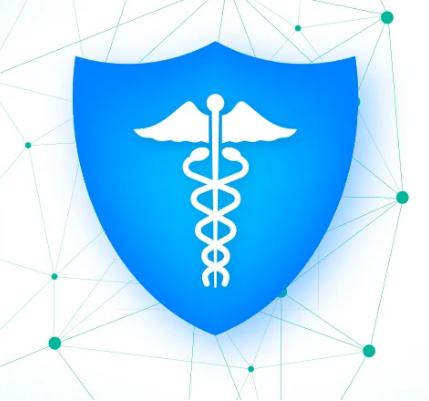GUIDE TO BUILD A HIPAA-COMPLIANT HEALTHCAREAPP





In 1996, the Health Insurance Portability and Accountability Act (HIPAA) was created with three goals in mind: to regulate patient data security, reduce healthcare spending, and provide stable healthcare insurance coverage for people who change or leave their jobs. Forcing organizations handling patient information to protect that data, the Department of Health and Human Services (HHS) issued regulations. The "HIPAA Privacy Rule" is how people usually refer to the law. The physical security and electronic systems of patient data must also be maintained by covered entities.

Numerous factors make HIPAA compliance crucial. HIPAA compliance is important because it contributes to patient privacy protection, first and foremost. All healthcare organizations are required by HIPAA to maintain the confidentiality of patient information. HIPAA compliance is crucial because it ensures the accuracy and dependability of patient data.
Hospitals need HIPAA because it makes sure patient data is accurate and trustworthy. Additionally, adhering to HIPAA regulations helps to safeguard patients' privacy. A healthcare company might face a civil penalty of up to $50,000 per violation if it is discovered that it violated HIPAA guidelines. Additionally, a healthcare organization might face a criminal fine of up to $250,000 if it is determined that it knowingly broke HIPAA regulations. As a result, healthcare organizations must take action to ensure HIPAA compliance.
If patient information was compromised, it might be exploited to steal identities or harm patients. Additionally, improper handling of patient data might result in errors in medical records, which could have a significant impact on patient treatment.
HIPAA prohibits pharmaceutical vendors and billing specialists from sending patient information in advance. The bill must include all interactions between the vendor and the payer. To make sure that each organization is informed of the situation and any potential charges, do this. Additionally, this action enhances patient safety and lowers the likelihood of fraud.
To be successful, a HIPAA-compliant healthcare system must take into account the demands of all parties, including patients. Patients must have confidence that their information will be treated confidentially and to their own advantage. Healthcare firms must guarantee that all staff members are taught on HIPAA rules.
The physical security requirements of a healthcare app have a direct impact on the security of the backend network, data networks, and linked devices. In the absence of these physical security safeguards, the app is susceptible to theft and physical tampering. Healthcare facilities must put physical security measures in place to stop this, including locks, alarms, and security cameras.
Healthcare institutions must also have policies and processes in place to guarantee that only authorized staff have access to the app and its data.
The data, which can be sent to or stored on servers and devices, is encrypted as part of the technical security measures for a HIPAAcompliant healthcare app. This guarantees that the data is safe from tampering and unauthorized access. In order to secure the data while it is being delivered over the internet, you must also encrypt it using Transport Layer Security (TLS). You may safeguard your app and its data from illegal access by utilizing these security methods.
A HIPAA-compliant mobile application development requires complex development. Without assistance, it can be difficult to comply with all HIPAA regulations, especially if you lack the necessary expertise. There are several measures you must take to guarantee that your software complies with HIPAA. First, make sure that all staff members have received training on HIPAA regulations and that all patient data is stored securely. You need to comprehend protected health information before you can create a healthcare app that complies with HIPAA (PHI). Any piece of patient information that can be used to identify them is considered PHI. This information consists of their name, birthdate, social security number, and health history.
The COVID-19 pandemic is only one of the issues that healthcare is facing as a result of the digital transition. Future healthcare will be dominated by digital transformation. The COVID-19 crisis is having an impact on the healthcare industry, and soon, digital healthcare transformation will take the lead in this area.
The widespread use of mobile devices and cloud-based solutions will accelerate this change. Understanding the significance of compliances today and incorporating them into your app is essential to establishing a successful HIPAA-compliant mobile app. You will probably achieve success tomorrow if you do this.
Healthcare customers and providers demand more secure and compliant apps, and businesses that do not invest in compliance today will likely see their businesses suffer in the future. There are many different ways to meet HIPAA compliance, and using a HIPAA-compliant platform can save time and money.

